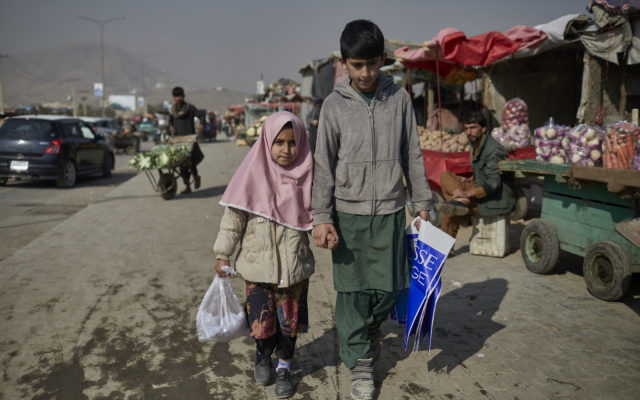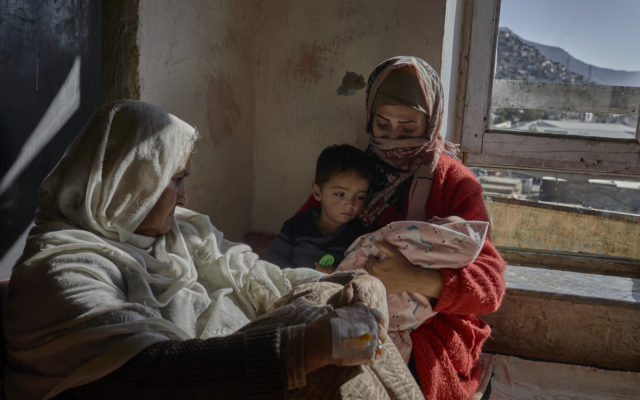On the frontline with UNHCR
We spoke to UNHCR Senior Communications Officer in Afghanistan Peter Kessler about the situation facing displaced Afghans this winter. This is what he had to say…
26.10.22
© UNHCR/Andrew McConnell
The cold season arrives early in Afghanistan’s Hindu Kush. Early snow flurries and snowfalls are frequent, and by October remote provinces can be cut off.
People struggle in these situations. Most of the country is not served by electricity infrastructure. The winter air is full of smoke, as people burn wood and coal, or dried manure, waste plastic and even tires to stay warm. Respiratory illnesses are common due to the dust and particulate matter in the air.
Most problematic is the lack of work. The economy is contracting while the population faces grave humanitarian needs.
Most families just eat one meal a day, then nibble on bread if they have it.
Families send children out to search for scraps of food and fuel like pieces of wood for winter warmth. Some desperate families tell us they send their school-age boys to illegally cross into neighbouring countries to find work. Survival over winter is tough if families have no income.
Over the past year, parts of Afghanistan have become safer, but the country is in the grip of a worsening humanitarian crisis, which women and girls bear the brunt of.
Here are five things you should know about #Afghanistan…https://t.co/nxMIZ2kzre
— UK for UNHCR (@UNRefugeesUK) August 26, 2022
UNHCR always need funds to buy tents and kits of household items and to purchase hygiene kits (containing sanitary cotton, undergarments, soap, and a metal bucket) for women and girls. Solar panels are also provided, particularly to people engaged in livelihood projects such as poultry raising.
Supporting UNHCR’s programs, which help Afghan people displaced by conflict and others meet urgent needs, is vital.
Our emergency response capacity ensures we can deliver emergency relief supplies where they are most needed.
___________________________________
Your support today could help Afghans this winter in heating and insulating their shelters. Please donate now.
To learn more about the situation in Afghanistan, visit this page.




